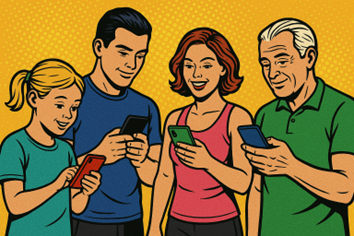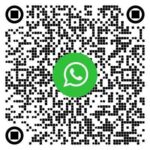WhatsApp is now an integral part of everyday life for the vast majority of Germans. Over 85% of internet users in Germany use the app regularly, making it by far the most used messaging tool. The app is fast, direct, and personal, and many people use it even more often than email or traditional social media platforms. This opens up new opportunities, especially in the healthcare sector: Patients want reliable support, and healthcare professionals (HCPs) expect up-to-date and secure information. When used correctly, WhatsApp can meet both needs.
The way people communicate has changed fundamentally. Emails are often ignored, hotlines involve waiting times, and social media channels don't always reach the relevant target audiences. WhatsApp, on the other hand, is ubiquitous, mobile, and enables immediate communication. People use the app for personal conversations and increasingly expect this closeness in their interactions with companies or service providers. This familiarity can be crucial, especially in the sensitive area of health communication.
WhatsApp is established across generations. Young adults are particularly active, but the vast majority of people over 30 also use WhatsApp daily. Even in the 65+ age group, the app is now firmly established in the everyday lives of many people. While Instagram is particularly popular with younger target groups, WhatsApp offers access to almost all age groups, and this is precisely where its communicative strength lies.
The key advantage: Messages via WhatsApp are generally opened and read. Questions can be asked directly within the chat, and content can be accessed individually. This makes WhatsApp more than just a push channel—it's a true dialogue space.
Why this is relevant for pharmaceutical companies
Compared to traditional channels such as hotlines, newsletters or social media, WhatsApp offers two key advantages:
- High attention: Messages are rarely missed and users often respond within a very short time.
- Real dialogue instead of a one-way street: Queries, confirmations, interactions are possible at any time
Comviira® provides precisely the features needed in the pharmaceutical sector: documented opt-ins, verification mechanisms, integration into medical/legal processes, and optional PV monitoring. This creates a HWG-sensitive communication channel aligned with regulatory requirements for modern patient services and HCP dialogues.
Conclusion
WhatsApp represents a widely used communication infrastructure that can also be used in the pharmaceutical context – subject to regulatory requirements. Comviira® transforms this into a dialog-enabled, structured, and professional solution for HCP and patient communication.




